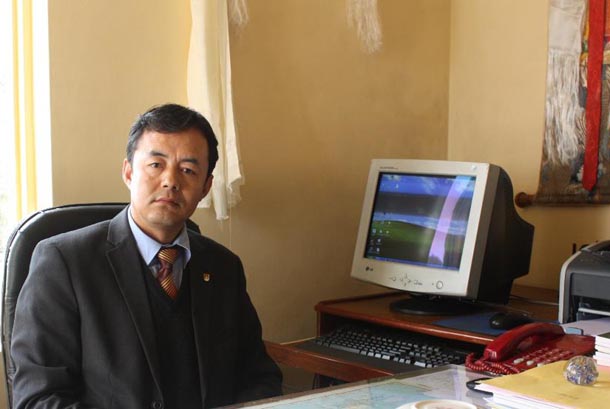 Dharamshala: - As in other parts of the world, the World Tuberculosis Day was also observed in several parts of the Tibetan communities in exile. Here in Dharamshala, the heart of exile Tibetans, under theme of "Stop TB in my Lifetime" the World TB Day was jointly observed by Department of Health of the Central Tibetan Administration and Tibetan Delek Hospital.
Dharamshala: - As in other parts of the world, the World Tuberculosis Day was also observed in several parts of the Tibetan communities in exile. Here in Dharamshala, the heart of exile Tibetans, under theme of "Stop TB in my Lifetime" the World TB Day was jointly observed by Department of Health of the Central Tibetan Administration and Tibetan Delek Hospital.
"March 24 commemorates the day in 1882 when Dr Robert Koch discovered the cause of tuberculosis, the TB bacillus. Since then 24th March is observed every year as World TB Day worldwide, said Tsering Wangchuk, Kalon or minister for Health Department.
The Tibetan minister said that 'Tuberculosis is a preventable disease which can be prevented and cured easily by prompt and proper diagnosis and treatment. Every year more than nine million people are affected and more than two million people die of TB worldwide.'
"The burden of tuberculosis in our Tibetan community has decreased over the decades due to improvement in economic condition and medical facilities," said in a statement issued on the World TB Day.
"However, due to lack of awareness about the disease, poor treatment compliance by patients and unreliable treatment regimen by private practitioners, the incidence of drug resistant form of tuberculosis is on the rise and thus, posing a serious health problem in our community," he added.
"Multi drug resistant tuberculosis is not only difficult to treat but also takes more than two years of treatment. Treatment of drug resistant tuberculosis costs more than two hundred thousand rupees, inadvertently causing an enormous economic burden to patients, community and the administration at large," he stressed..
The minister said that "this year's World TB Day theme "Stop TB in my Lifetime" underscores the need to instill awareness about tuberculosis and endeavors to stop TB in one's lifetime."
Tsering Wangchuk urged his fellow Tibetans to draw more attention to this deadly disease into action. "You and your near and dear ones who experience any signs and symptoms of TB such as cough for a prolonged period, mild fever during night time, perspiration, chest pain, weight loss and loss of appetite should immediately seek medical care from the nearest Indian Govt or Health Department medical facility," he said.
"Patients must fully comply with their treatment and take necessary precautions like covering one's mouth to ensure that they do not infect others." He said he hopes and pray that soon we would be able to eliminate TB from our community.
'We all must realize that TB patients are like one of us who desire happiness and must therefore be treated with love and compassion without any sort of discrimination. Lastly, I urge all members of our community, young and old, to join together for this collective effort to prevent and control TB in our community, the minister furter added.
The international community observed the World TB Day, many say it is a good time to take stock of progress in global TB control. However, Tuberculosis (TB) infects around 8.7 million people worldwide every year and kills 1.4 million, according to the World Health Organisation.
"We have gained a lot of ground in TB control through international collaboration, but it can easily be lost if we do not act now," Margaret Chan, head of the World Health Organisation told reporters on Monday.
Multidrug-resistant tuberculosis - known in medical jargon as MDR-TB - presents a huge threat, with an estimated 630,000 people now ill worldwide with this form of the disease. About 60 per cent of cases of MDR-TB occur in Brazil, China, Russia and South Africa.
The number indicates that one person dies of the disease every ten minutes as its declining very slowly. According to reports across the world, it is now obvious that the disease cannot be eliminated by 2050.


![Tibet has a rich history as a sovereign nation until the 1950s when it was invaded by China. [Photo: File]](/images/stories/Pics-2024/March/Tibet-Nation-1940s.jpg#joomlaImage://local-images/stories/Pics-2024/March/Tibet-Nation-1940s.jpg?width=1489&height=878)















